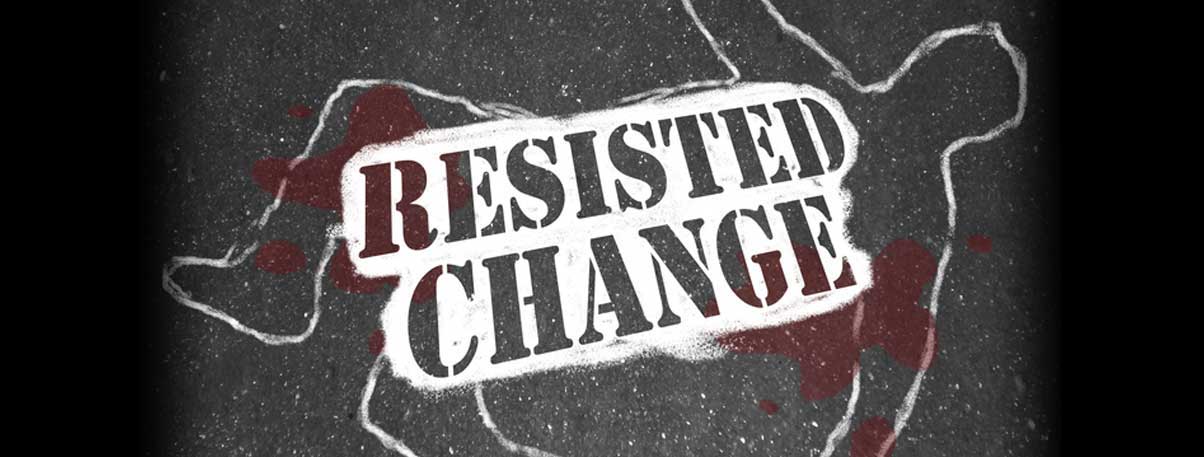
In review, we’ve talked about your WHY, your WHO, and your WHAT. I want you to grasp tightly to the reasons WHY you are doing something. If you have a WHY, then the work isn’t just work – it has purpose! Also, you can’t be all you can be alone – you need some WHO’s in your life to teach you, support you, and help you! Also, you need to know exactly WHAT it is you want or you will just be chasing the wind!
Today, let’s talk about your WHEN. I often hear people say, “When we have enough money, we’ll get married.” I’ve got news for them – that hardly ever happens! Why would you let your net-worth affect the date you begin spending your life with the one you love? I also hear, “I’ll start my diet on Monday – after I eat this cheeseburger.” Tomorrow never comes and you’re just wasting time. If you could get exactly what you want, why would you put it off? You’re robbing yourself of time with what you want!
Your WHEN happens when you decide to take the first step. It’s not when you stand on the scale and hit your goal weight! It’s when you make a decision to change. It’s not when you pay the last debt payment! It’s when you cut up the cards and start paying more than the minimum payment. The length of the journey is not what is important – it’s the journey itself. The size of the step isn’t important, either. It’s simply taking one – one single step that begins a new direction, bringing you closer to where you eventually want to be! This can be with any goal; diet, business, relationship, or spiritual goal!
Too many times we are waiting for the right time, or the right place, or the right economy, or something else to begin our journey. Does what you want depend on external situations? If so, change your mind about that! Here are a few facts for you to consider:
- Proctor & Gamble was started during the Panic of 1837, the greatest economic decline since the birth of the country! Proctor & Gamble’s revenue in 2013 was $84.17 Billion.
- The three founding companies that merged in 1911 to form IBM, all were founded during the Long Depression of 1873-1896.
- General Electric was born during the Panic of 1873 which shut down the NYSE for days! The Panic didn’t stop the company who in 2013 had revenues of $146 Billion Dollars. Not bad, huh?
- General Motors was founded after the Panic of 1907, which caused major runs in which many financial institutions did not survive.
- FedEx was founded during the Oil Crisis of 1973. Really? A delivery company founded during a fuel crisis? Whoulda thunk?
My point is to stop making excuses and start taking steps. Your WHEN is today! You don’t have to know the whole plan! You don’t even have to know half the plan. You just need to know the dream or goal in your heart, and then find the next right thing to do. Your Journey begins with a single step.

In continuing with my last two blogs, perhaps some of you aren’t even at the point that you know WHAT it is that you want to do or achieve. When we don’t quite know WHAT it is that we want, it can be quite hard to get it! Think of your life as a journey, and you have a GPS (or as Herman Cain calls it, Guiding Principles of Success). WHAT do you need to know? Well, the first WHAT is your current coordinates!
We all want to go somewhere, but if you don’t know where to start, how can you take the first step? I always tell people who join my Simply Lose It™ bootcamp to weigh in before beginning to get a starting point! Otherwise, you could be making progress towards your goal and not even know it! We need small victories to continue to motivate us toward our goal! Otherwise, we just might quit when we feel defeated. We also may even be sabotaging our success and moving backwards! How would you even know if you never acquired your current coordinates?
Second, you need to know your destination. If you use your GPS without placing your ending coordinates as the destination, you simply have something that shows you where you currently are; not where you are going. To make progress in your Journey, you must have your WHAT, or a specific goal in mind. How you get there may go left, right, even a few steps back at times, but you should be continually making progress. The speed isn’t always important, and sometimes you have to stop to smell the roses, but making some sort of progress is important! So the second WHAT you need is your goal.
The third WHAT you need is a plan. It may be a complex plan, or just a simple plan! But there must be a plan. I see many people that want something, but they have no idea how to get there, and that’s okay, but you need to figure that out before you embark on your journey. Otherwise, you may be going in the wrong direction, or even creating things you’ll need to fix or change later. Once, my dad asked me to dig the grass out of an area in the yard and level it for our new above ground pool. There was a trailer I was going to put the dirt in, so I just began to dig. I threw the dirt towards the trailer, and when I was finished, about a third of the dirt actually made it in the trailer. Then I had to do twice the work to finish the job! Why didn’t I take the time and devise the plan to get the dirt in the trailer the first time? This is what you may be doing by not pausing to devise a plan – a business, weight-loss, marriage, or savings plan. Find help if you need it, get the information you need, and devise a plan!
The fourth WHAT you need is the courage and motivation you’ll need to stay the course. It may look like you aren’t making progress at times, but if you know where you began, know where you are going, have a plan, and take periodic spot checks to assure you are on course, you’ll find the faith that every step you are taking is making a difference! Some days you’ll find it harder than others to get moving, but always remember that WHY we talked about a few weeks ago and that should keep you motivated. Sometimes the next step you need to take will be a little scary, but again, remember that WHY and also call on your WHOs to keep you motivated, accountable, and to help you continue along the journey!
So WHAT are your starting coordinates, WHAT are your ending coordinates, WHAT is your plan, and WHAT will keep you motivated and give you courage to make it happen? With these, you’ll soon be closer than you ever dreamed to WHAT you really want!
In The Journey Training, we believe that goal setting is important. In each class we help people set goals and find action steps to take to begin. If you’ve been having trouble moving forward, join the next Threshold class and begin your Journey now!

When I was growing up, I made a decision to change my life, to live for God and try to live as a Christian did. I started watching who I hung around with, and what I let influence my life. When I was in my mid 20s I started playing paintball. There is something thrilling about running around in the forest with guys shooting at you! This was something I did on a regular basis, and eventually I wanted to play tournaments. I wanted to win, so I joined a team that was really, really good.
Why Did I Say That?
But on this team, my teammates and I did not hold the same values. I started to notice over time that the words I chose to use were more and more colorful. I was not using them because I was mad and it was an “accident.” I was using them because they were convenient and familiar. I used these words because the people around me used them. I never once stopped to ask myself, “Why did I say that?” My wife noticed this growing habit as well. She told me once, “In the heat of battle you seem to be cussing a lot.”
Eventually, my wife’s words convicted me and I apologized to her. I then had to make the tough decision to find a new team that better reflected my beliefs and character. This new team did not win as many games, but it was far better for my both my character and my soul.
If you ever find yourself asking “Why did I say that?”, take a look at the people you spend time with. If so, it may be time for you to make some changes as well.
By the way, my new team and I eventually got better, and actually ended up beating my original team.

Who doesn’t love accountability? Well, at first thought, probably no one! The thoughts that run through my head are “I have to tell someone my secrets” or “I don’t want to have to answer to anyone else!” You might even be thinking, “I’m successful, I don’t need to be accountable. I’m accountable to myself.” Well, if the concept of accountability isn’t your favorite thought, then let’s explore the idea further.
I was on an airplane traveling to a speaking engagement a while back. While on a plane, I like to relax or read my current book or periodical. I left my book in the overhead bin because I wanted to relax. For some reason, I opened the seatback pocket and pulled out a magazine. I read about a high school runner who eclipsed the 4-minute mark for his mile and won the race that day. For a world class runner, that is a big deal – but for a high school runner, that’s amazing! But when you look a little further, you see that the second place runner also broke the 4-minute barrier too! When the winner was asked how he did it, he said, “Well, I was being pushed every step of the race. When I thought about pacing, there he was – right behind me. I would have never achieved this had it not been for my competition.” When the 2nd place finisher was asked how it felt to lose the race but break that milestone, he said, “I never could have done it had I not been chasing my opponent with everything that I had. I wanted to slow the pace, but he kept me accountable and I just ran!”
Accountable means “being responsible for some action.” Being accountable means to take responsibility for your actions; or equally responsible for your inaction. And let’s face it; it’s usually your inaction that keeps you from your dreams and goals!
The second place finisher may not have gotten the gold medal but he got something even more incredible – the achievement that most runners never see – a sub 4-minute mile! Who cares if you win or lose if you are that successful? I can’t sit here and say that if I had 10-million dollars that I would regret not making eleven!
Another situation can be seen on The Biggest Loser during my season of Second Chances. I had accountability out the wah-zoo! When people ask me how I lost 239 pounds in 210 days, I always cite the accountability factor. First, there was Rudy. He lost 234 pounds and 52.94% of his body weight. I beat him by losing 239 pounds and 55.58% of my body weight. When asked how I did it, my quote on the finale show was, “I’ve spent most of my time trying to catch up to this guy <pointing to Rudy>!” In fact, it is touted as the greatest race in the history of The Biggest Loser. On any other season except season 7 and 8, Rudy would have won – just like that 2nd place finisher in the mile. However, we needed each other to keep us accountable in order to accomplish what we did.
You see, accountability is not a bad thing; it’s the thing that will get you what you want the most – success! You need someone pushing you or you’ll never go as far.
In the Journey Training, we help people set goals and visualize dreams. Then they meet people in their own class to help them achieve those dreams – but only if they’re willing to be accountable! Remember, accountability = responsibility. That means that not being accountable = victim mentality! As for me, I welcome accountability – will you?

On the journey of life, resistance to change can exposes itself in many ways, ranging from foot-dragging, to sabotage, to even outright rebellion. Studying universal sources of resistance gives us the ability to see when we may be resistant to change ourselves. Here are several warning signs to watch out for:
• Excessive Uncertainty.
To some, change can feel like walking off a cliff blindfolded. This anxiety can cause us to push back from anything we view as “change.” We all naturally seek self preservation and safety, so it is common for people to choose to remain in misery to avoid the uncertainty of change. As the saying goes, “Better the devil you know than the devil you don’t.”
• Everything seems different.
Change naturally brings new things into our lives. But we are creatures of habit. Since we are often lulled into daily routines, change often jolts us into consciousness, often in uncomfortable ways. We can resist change if it shines a spotlight on things we’d rather have stay the same.
• Loss of face.
Change is a departure from the past. We can perceive change as admitting that we have done something wrong that requires a change. If we buy into that thought process, we often resist change to save our ego and perceived reputation.
• Concerns about competence.
If changes mean that our current skills become obsolete, we often resist change so that we don’t have to learn new skill sets. If things would only stay the same, we would not have to feel like we are not up to the new task.
• More work.
Change is indeed more work. Those closest to change are often overloaded and resist it in an effort to reduce the load.
• Past resentment.
The ghosts of the past are always lying in wait to haunt us. Old wounds can be reopened in times of change.
• Ripple effects.
Change can create ripples and affect others around you. These ripples can lead to disruptions in routines, workflow, and even in the way we think.
* Have you found yourself resisting change lately? If so, do you see things like these cropping up within you? How have you dealt with them?
Page 9 of 9« First«...56789






